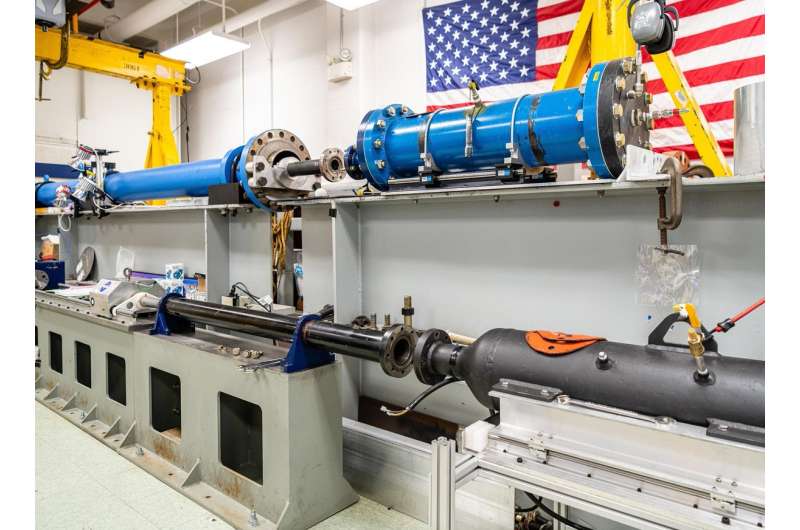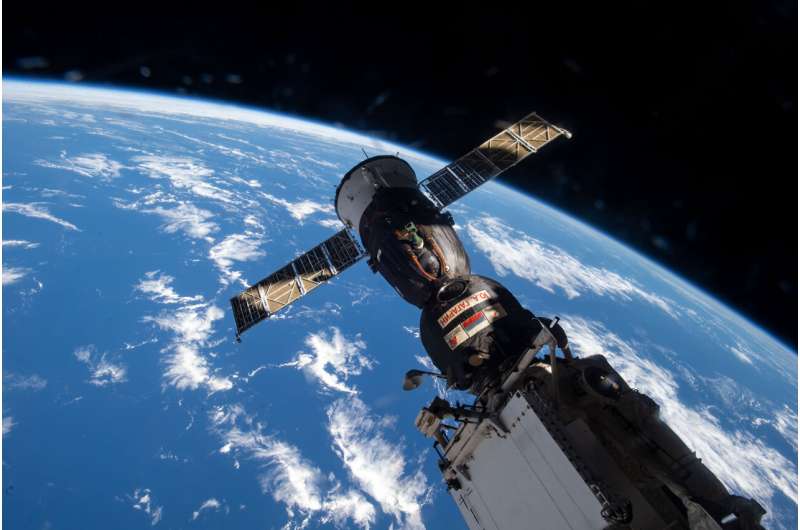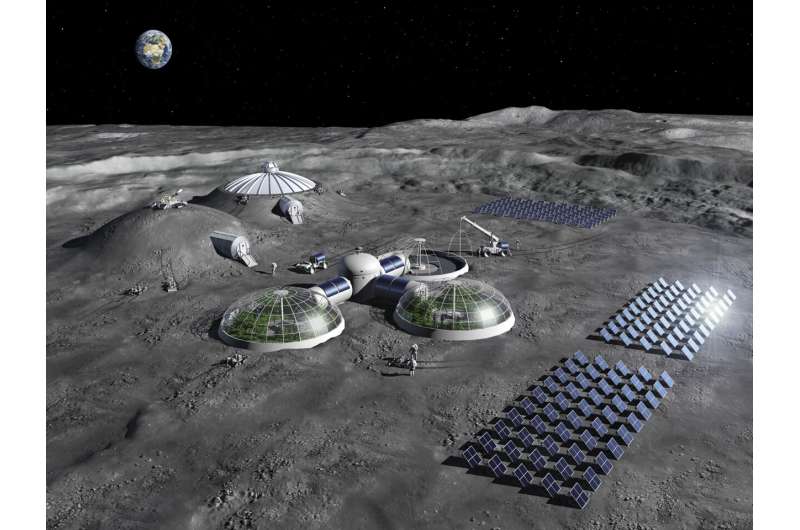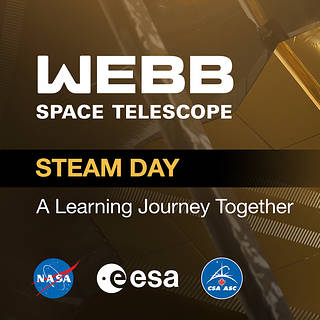
Copernical Team
Elon Musk says Inspiration4 crew had 'challenges' with toilet, vows for bathroom upgrades

The private space flight, SpaceX, completed a historic mission with the first all-civilian flight crew last weekend. The four members of the Inspiration4 crew raised $200 million for St. Jude Children's Research Hospital, and helped prove SpaceX founder Elon Musk's belief that non-professional astronauts can venture into space in regularity.
Every successful mission has its learning moments, however. One key takeaway from a three-day trip in space: Spacecraft bathrooms aren't ideal whatsoever.
In responding to followers asking about the mission, Musk tweeted Monday night that the Inspiration4 crew had some difficulties with the bathroom and promised upgrades for future missions.
"Definitely upgraded toilets :) We had some challenges with it this flight," Musk tweeted. The billionaire also promised better WiFi and oven.
While Musk didn't elaborate (for which we'll thank him), Inspiration4 member Jared Isaacman told Insider in July the facilities were located near the spacecraft's large cupola window.
"It's not a ton of privacy," he said. "But you do have this kind of privacy curtain that cuts across the top of the spacecraft, so you can kind of separate yourself from everyone else.
NASA ballistic air gun hurls rocks at space suits to test their micrometeorite protection

Shock testing is commonly used throughout engineering to determine how a product will do when impacted by something. That something could be anything from the ground to a cruise missile. Like so much else in space exploration, engineers at NASA are performing the same type of test, just scaled up. Instead of simply dropping the object under test, as is common in most settings, they shoot it with a steel ball going 3000 ft/second.
Researchers at the Ballistics Impact Lab use a 40-foot-long gun to simulate what it would be like to be hit by a micrometeorite in space. Recently, the team has focused on testing different types of fabric for use in space suits. A rapid decompression from a micrometeorite strike anywhere on a suit would be fatal to any astronaut unlucky enough to suffer one.
Understanding how a piece of fabric would fail in such a situation is critical to improving its design. Some forms of failure are worse than others. The lab has a series of high-speed cameras and sensors surrounding the material under test to ensure it can capture as much data about those failure modes as possible.
Space station crew to relocate Soyuz, make room for new crewmates

Three residents of the International Space Station will take a short ride aboard a Soyuz MS-18 spacecraft Tuesday, Sept. 28, relocating the spacecraft to prepare for the arrival of the next set of station crew members.
Expedition 65 flight engineers Mark Vande Hei of NASA and Oleg Novitskiy and Pyotr Dubrov of the Russian Space Agency Roscosmos will undock from the station's Earth-facing Rassvet module at 8:21 a.m. EDT. They will dock again at the Nauka Multipurpose Laboratory Module at 9 a.m. This will be the first time a spacecraft has attached to the new Nauka module, which arrived at the station in July.
Live coverage of the maneuver will begin at 8 a.m. on NASA Television, the NASA app, and the agency's website.
Life support cooked up from lunar rocks

Engineers have successfully shown how water and oxygen can be extracted by cooking up lunar soil, in order to support future Moon bases. A laboratory demonstrator, developed by a consortium of the Politecnico Milano, the European Space Agency, the Italian Space Agency and the OHB Group, is presented this week at the Europlanet Science Congress (EPSC) 2021.
The set-up uses a two-step process, well known in industrial chemistry for terrestrial applications, that has been customized to work with a mineral mixture that mimics the lunar soil. Around 50% of lunar soil in all regions of the Moon is made up of silicon- or iron-oxides, and these in turn are around 26% oxygen. This means that a system that efficiently extracts oxygen from the soil could operate at any landing site or installation on the Moon.
In the experimental set-up, the soil simulant is vaporized in the presence of hydrogen and methane, then "washed" with hydrogen gas.
NASA Announces Virtual Webb STEAM Day Event for Students, Educators
 NASA invites learners of all ages, including students and teachers who recently returned to the classroom environment, to register for a special event ahead of the upcoming launch of the James Webb Space Telescope.
NASA invites learners of all ages, including students and teachers who recently returned to the classroom environment, to register for a special event ahead of the upcoming launch of the James Webb Space Telescope. NASA awards Orion Main Engine contract for future Artemis missions
 NASA has awarded a contract to Aerojet Rocketdyne Inc. of Redmond, Washington, for the development of the Orion Main Engine (OME), which will be used on the Orion spacecraft as part of the agency's Artemis program.
The contract includes certification of the OME design, production, and special studies and tasks. It is a single-award, indefinite-delivery/indefinite-quantity contract with fir
NASA has awarded a contract to Aerojet Rocketdyne Inc. of Redmond, Washington, for the development of the Orion Main Engine (OME), which will be used on the Orion spacecraft as part of the agency's Artemis program.
The contract includes certification of the OME design, production, and special studies and tasks. It is a single-award, indefinite-delivery/indefinite-quantity contract with fir Kendall presents unsparing blueprint for confronting China and other threats
 Department of the Air Force Secretary, Frank Kendall, offered a blunt and unsparing blueprint Sept. 20 for the Air and Space Forces, Congress and others to follow if they are to meet - and overcome - challenges to the nation's security posed by China and others.
Time is short, he said in a 30 minute, closely watched address to the Air Force Association's Air, Space, and Cyber Conference an
Department of the Air Force Secretary, Frank Kendall, offered a blunt and unsparing blueprint Sept. 20 for the Air and Space Forces, Congress and others to follow if they are to meet - and overcome - challenges to the nation's security posed by China and others.
Time is short, he said in a 30 minute, closely watched address to the Air Force Association's Air, Space, and Cyber Conference an Exploring quantum gravity-for whom the pendulum swings
 When it comes to a marriage with quantum theory, gravity is the lone holdout among the four fundamental forces in nature. The three others-the electromagnetic force, the weak force, which is responsible for radioactive decay, and the strong force, which binds neutrons and protons together within the atomic nucleus-have all merged with quantum theory to successfully describe the universe on the t
When it comes to a marriage with quantum theory, gravity is the lone holdout among the four fundamental forces in nature. The three others-the electromagnetic force, the weak force, which is responsible for radioactive decay, and the strong force, which binds neutrons and protons together within the atomic nucleus-have all merged with quantum theory to successfully describe the universe on the t Dashcam detective work leads to recovery of space rocks from fireball over Slovenia
 On 28 February 2020, at 10:30 CET, hundreds of people across Slovenia, Croatia, Italy, Austria and Hungary observed a bright ball of light hurtling across the morning sky. This delivery of rocks from a distant asteroid to the fields and villages of southern Slovenia was captured by cars' dashcams, security cameras, and even a cyclist's helmet.
It is one of only around 40 fallen space rocks
On 28 February 2020, at 10:30 CET, hundreds of people across Slovenia, Croatia, Italy, Austria and Hungary observed a bright ball of light hurtling across the morning sky. This delivery of rocks from a distant asteroid to the fields and villages of southern Slovenia was captured by cars' dashcams, security cameras, and even a cyclist's helmet.
It is one of only around 40 fallen space rocks US Space Force Commander claims Russia has armed satellite in orbit
 Russia already has deployed in low-earth orbit a "nesting doll" satellite armed with a weapon that can destroy US satellites vital for communications, command and control and precision targeting, Space Force Commander General John Raymond said on Tuesday.
"Russia has a nesting doll satellite [in orbit] to destroy US satellites, armed with a weapon to destroy US satellites," Raymond told th
Russia already has deployed in low-earth orbit a "nesting doll" satellite armed with a weapon that can destroy US satellites vital for communications, command and control and precision targeting, Space Force Commander General John Raymond said on Tuesday.
"Russia has a nesting doll satellite [in orbit] to destroy US satellites, armed with a weapon to destroy US satellites," Raymond told th 
